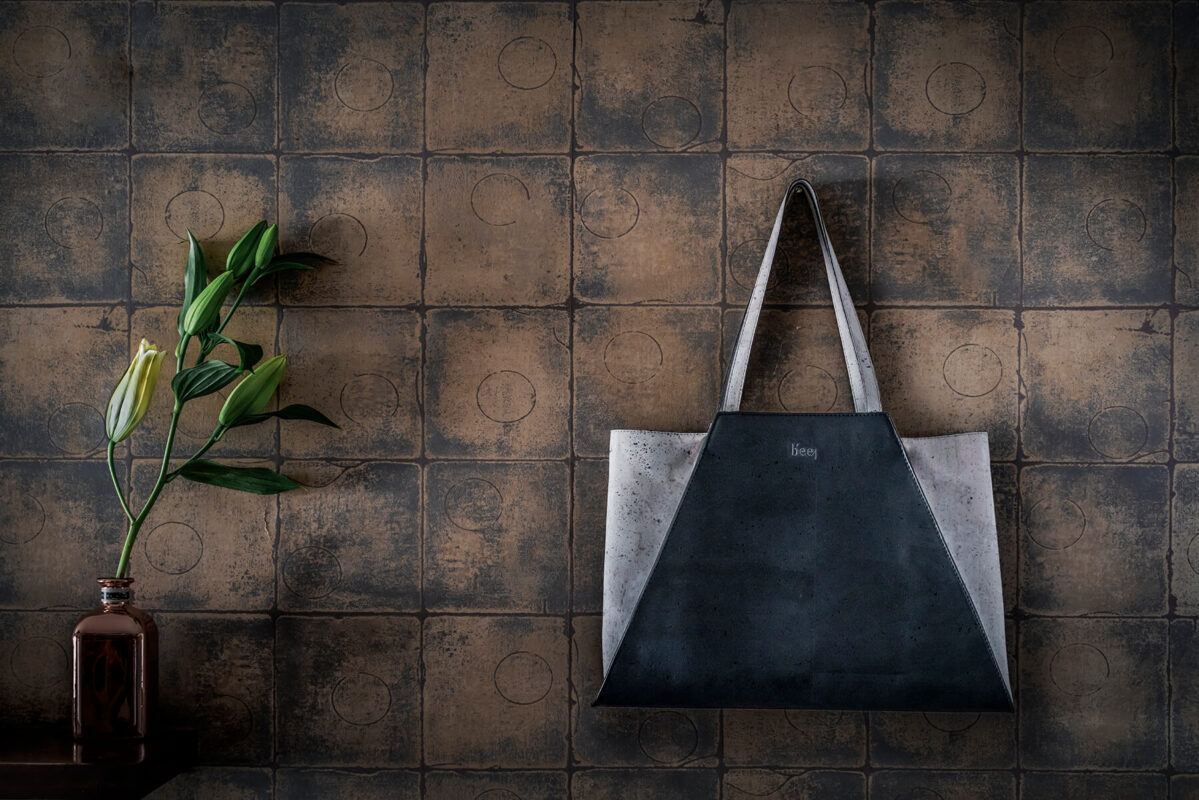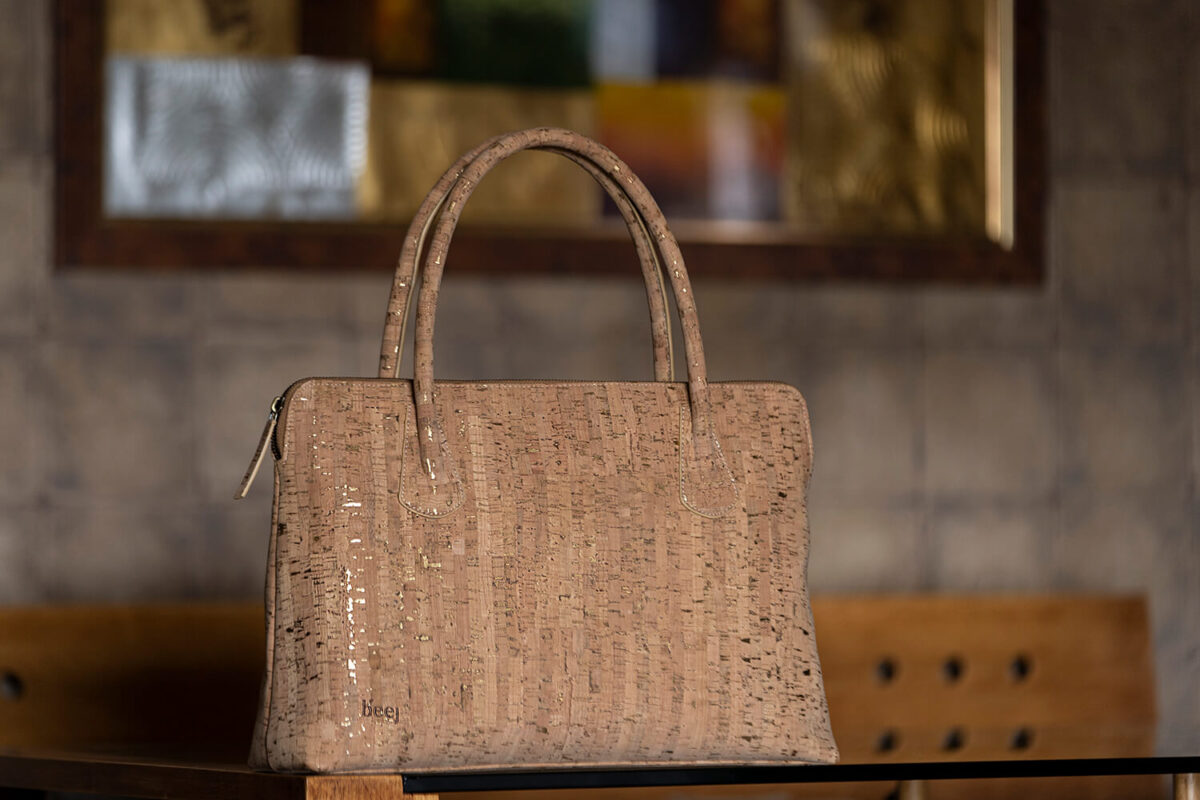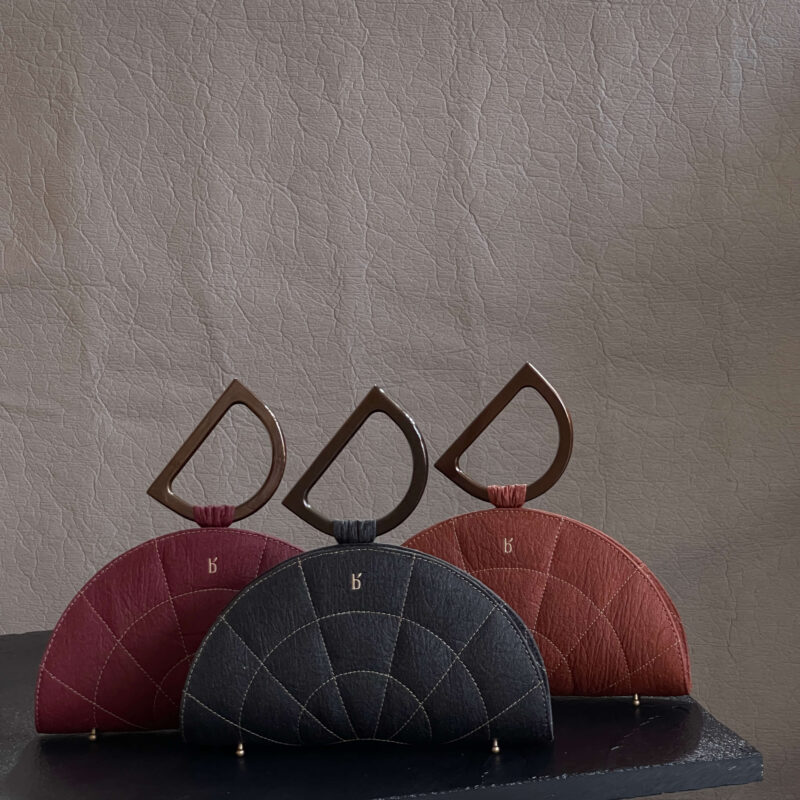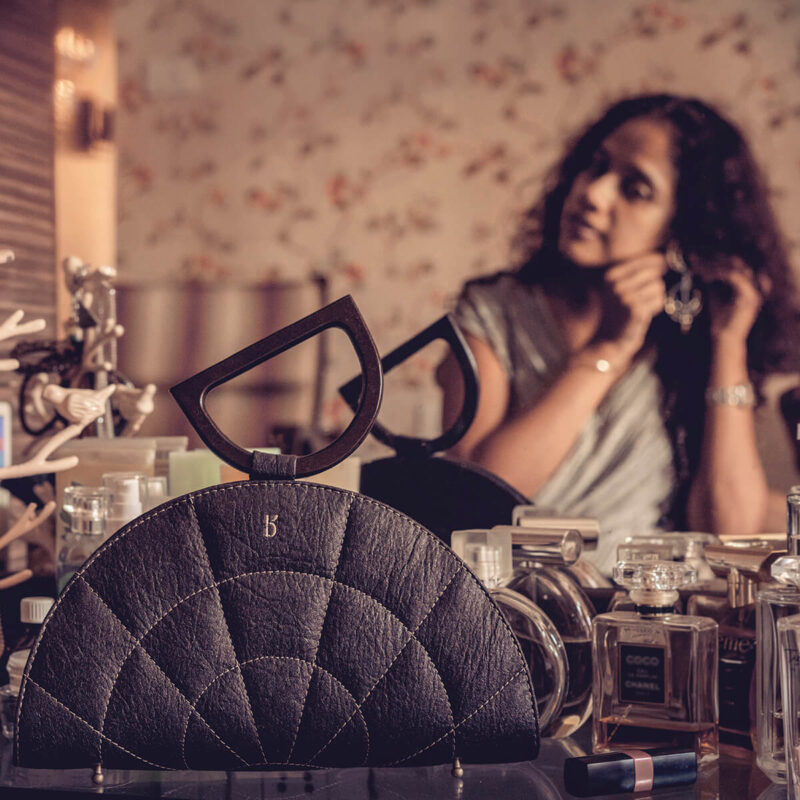Accessories, Design, Featured category
Sowing the right seeds
ISSUE: 130

Arundhati Kumar combines Indian workmanship with innovative materials from across the world to create a line of truly sustainable accessories

What took you from a 17-year career as an HR professional to setting up Studio Beej?
AK: My journey of sustainability began a few years ago when I started to read more about climate warming and its impact. What started as small personal lifestyle changes soon became a way of life. Extremely passionate about sustainability and global causes such as climate warming, environment conservation, reducing plastic pollution and wildlife, I decided to combine my love for the planet with my love for accessories. That became the foundation of Beej. I believe style and sustainability can and must co-exist. At Beej, we work with various plant-based and upcycled leather alternatives to create bags and other accessories.

How do you approach quality control?
AK: My father has a leather factory in Kolkata, and I’ve been visiting it since I was a little girl, so I actually grew up around karigars (artisans). Everything I’ve learnt about managing my team, I’ve learnt from my dad. He has a deep respect for their craftsmanship and follows a very consultative process while working with them, something I’ve brought to Beej as well. The karigars have hands-on experience on how materials behave and what can or cannot be done, and that’s a pearl of wisdom I respect greatly.

How else do you incorporate sustainability in your designs?
AK: Apart from the core material, every other part of the product too is carefully put together. For example, our linings are all made from recycled yarn, our zippers are made from recycled PET, we don’t use metal for our logos, and choose to embroider them instead, and our designs have minimal hardware. While designing patterns we look at silhouettes that allow us to minimize wastage during cutting, or create combinations where the waste of one can be used in another.
And finally, it comes down to packaging because there’s no point really in designing a conscious product and then sending it out in packaging that’s highly unsustainable. Our focus was on light packaging to minimize carbon footprints; our brand cards and tags are made of recycled paper, and the dust bags are made of jute and entirely repurposable.

Purchase Designindia 130 here. Read the digital copy of Designindia on Magzter, or POOL App which you can download from AppStore, Google Play.

